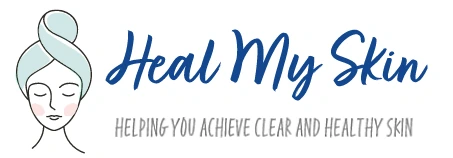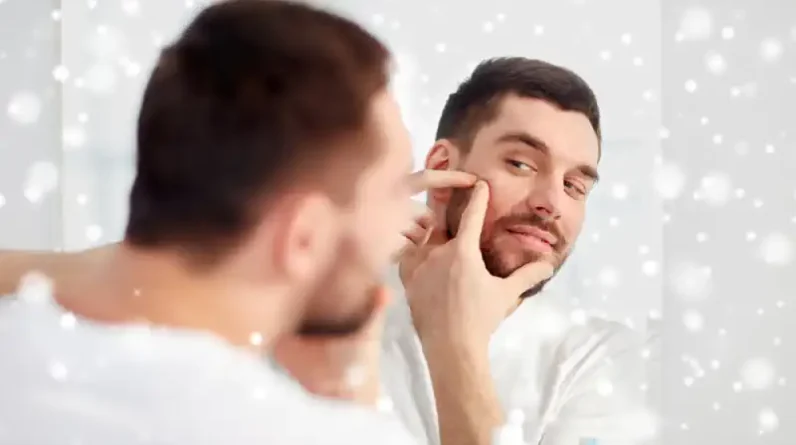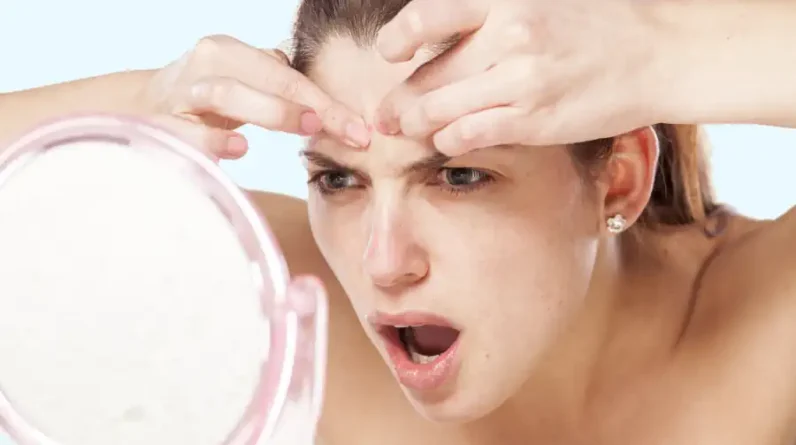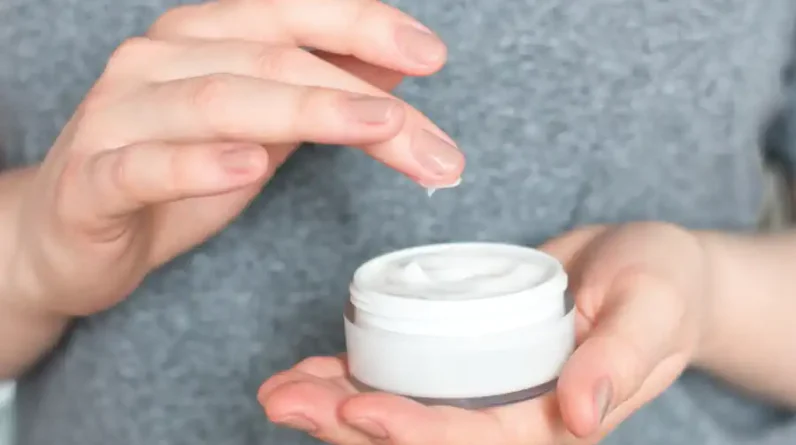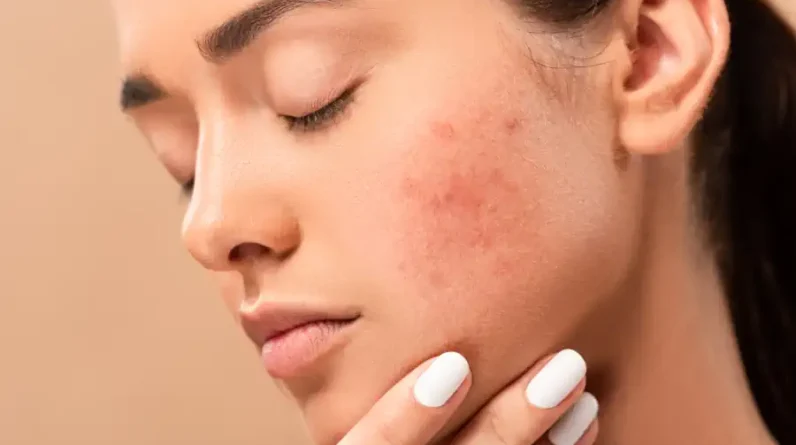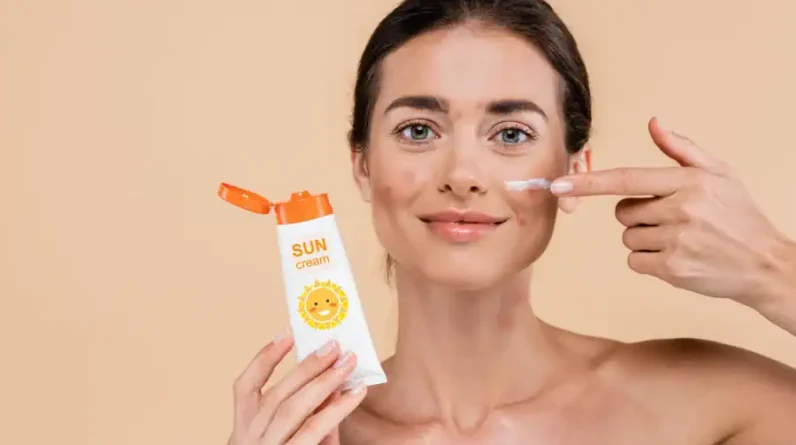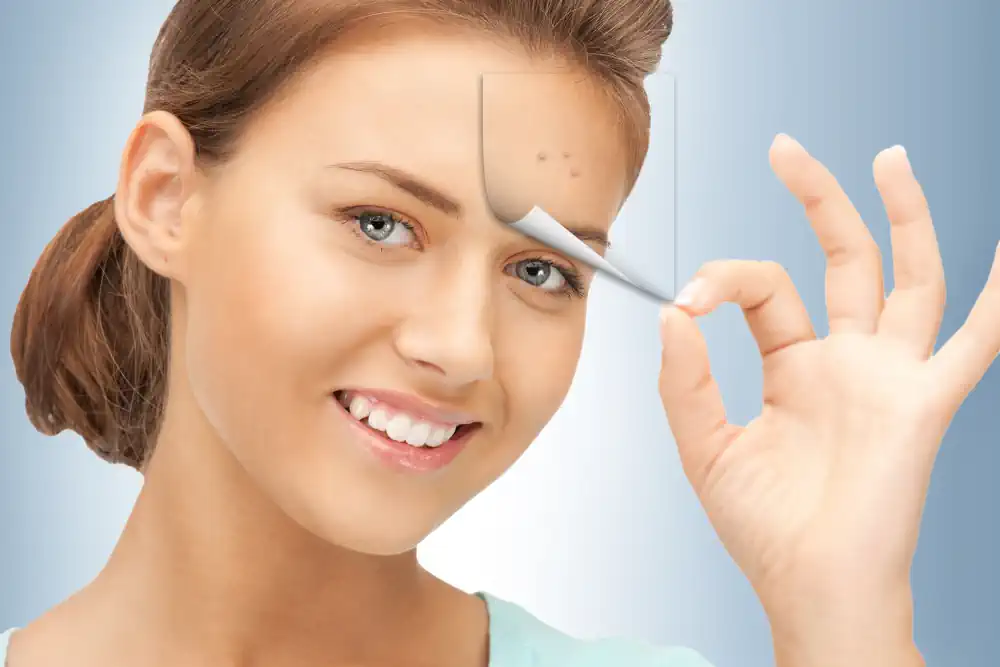
16 Myths About Acne
Acne is a frequent skin condition that affects up to 85% of people sometime during their lives. Despite its pervasiveness, there are still many myths and misconceptions about acne.
Some of these arise from outdated information, while others are simply old wives’ tales that have been passed down for generations. Regardless, it’s essential to be aware of the facts about acne so that you can better care for your skin.
So, let’s examine sixteen of the most common myths about acne and dispel them once and for all.
Myth #1: Acne Is The Result Of Poor Hygiene
This is one of the oldest and most persistent myths about acne. For years, people have believed that acne is caused by dirt and poor hygiene.
 This is likely because the dark centers of blackheads make them appear dirty. However, it simply isn’t true.
This is likely because the dark centers of blackheads make them appear dirty. However, it simply isn’t true.
A combination of factors, including hormones, genetics, bacteria, and the skin’s oil level, causes acne. While good hygiene can help to manage the oiliness of your skin, it will not prevent or cure acne.
Myth #2: Acne Is A Teenage Problem
Another common myth is that acne is a teenage problem. This myth likely arose because puberty is when the first acne lesions tend to develop. Also, acne resolves for most people by the time they reach their 20s.
 While it’s true that acne is most common in adolescence, acne can occur at any age, and some people continue to struggle with it well into adulthood. In fact, upwards of 40% of adults over the age of 25 suffer from acne. So, if you’re an adult and still struggling with acne, don’t despair – you’re not alone.
While it’s true that acne is most common in adolescence, acne can occur at any age, and some people continue to struggle with it well into adulthood. In fact, upwards of 40% of adults over the age of 25 suffer from acne. So, if you’re an adult and still struggling with acne, don’t despair – you’re not alone.
Reach out to your doctor and find a treatment plan that works for you.
Myth #3: Acne Is Caused By Stress
This myth likely came to be because teens often have acne breakouts during stressful times like finals, dates, and job interviews.
 But, research shows that while stress can worsen acne, it does not cause it. When you’re stressed, your body produces hormones that can increase oil production and inflammation. These can make acne worse.
But, research shows that while stress can worsen acne, it does not cause it. When you’re stressed, your body produces hormones that can increase oil production and inflammation. These can make acne worse.
So stress may be one of many possible triggers that can contribute to the worsening of acne, but it is not the root cause.
Myth #4: Acne Is Contagious
Another common myth about acne is that it’s contagious.
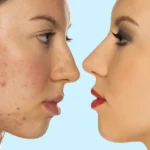 This one likely developed because pimples appear similar to other skin conditions like cold sores. A virus causes cold sores, and they are indeed contagious.
This one likely developed because pimples appear similar to other skin conditions like cold sores. A virus causes cold sores, and they are indeed contagious.
However, acne is not contagious. You cannot “catch” acne from someone else or transfer it to another person.
Myth #5: A Sunburn Or Tan Will Clear Acne
This myth likely developed because people with acne often see an improvement in their skin after spending time in the sun.
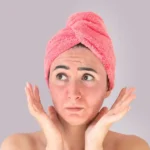 The reality is that while a sunburn or tan can make acne less visible, it does not actually clear the lesions. In fact, exposure to the sun can dry out your skin and make you more susceptible to breakouts in the future.
The reality is that while a sunburn or tan can make acne less visible, it does not actually clear the lesions. In fact, exposure to the sun can dry out your skin and make you more susceptible to breakouts in the future.
Furthermore, acne lesions that are exposed to sunlight can become darker (and more noticeable) than the surrounding skin.
Finally, sunburn is a known risk factor for lines, wrinkles, and skin cancer, so it’s best to avoid it altogether. This is particularly true since it just sets you up for future breakouts.
Myth #6: Washing Your Face More Frequently Will Prevent Breakouts
We have already discussed that acne is not caused by poor hygiene. So, it makes sense that washing your face more frequently will not prevent breakouts.
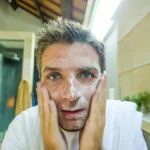 Washing your face more often will help to remove excess oil and bacteria from your skin, but it won’t stop acne. In fact, washing your face too frequently can irritate your skin and make your acne worse.
Washing your face more often will help to remove excess oil and bacteria from your skin, but it won’t stop acne. In fact, washing your face too frequently can irritate your skin and make your acne worse.
Over-washing can force your skin to produce more oil to compensate for the lost moisture, leading to more breakouts.
So, if you’re struggling with acne, don’t scrub your face raw in an attempt to prevent breakouts. The bottom line is that you should only wash your face once or twice a day with a gentle cleanser.
Myth #7: You Shouldn’t Wear Makeup If You Have Acne
This myth likely came about because certain types and brands of makeup can clog pores and lead to breakouts.
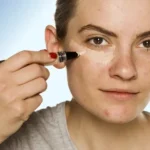 While it’s true that the wrong makeup can contribute to acne, this doesn’t mean that you should avoid it altogether. Indeed, many types of makeup are non-comedogenic (meaning they won’t clog pores) and help camouflage pimples.
While it’s true that the wrong makeup can contribute to acne, this doesn’t mean that you should avoid it altogether. Indeed, many types of makeup are non-comedogenic (meaning they won’t clog pores) and help camouflage pimples.
So, if you’re struggling with acne, talk to your doctor about which type of makeup is right for you.
Additionally, make sure you clean any makeup brushes or applicators that you use on a regular basis. Bacteria can build up on these personal care items and lead to breakouts.
Myth #8: Popping Pimples Will Make Them Go Away Faster
Popping pimples is something that most people with acne have likely tried at some point. After all, if the goal is to get rid of pimples, it makes sense that popping them would make them go away faster, right?
 Wrong. Popping pimples can cause additional damage to your skin and lead to more breakouts. When you pop a pimple, you are essentially injuring the skin. This can lead to inflammation, infection, and even scarring.
Wrong. Popping pimples can cause additional damage to your skin and lead to more breakouts. When you pop a pimple, you are essentially injuring the skin. This can lead to inflammation, infection, and even scarring.
Additionally, squeezing a blackhead or whitehead will push oil, dead skin cells, and bacteria further into the pores. This can lead to more breakouts. So, if you’re struggling with acne, resist the urge to pop your pimples. In the long run, your skin will appreciate it.
Myth #9: You Have To Let Acne Run Its Course
This myth likely developed because acne is a condition that comes back over and over again but clears up eventually for most teenagers.
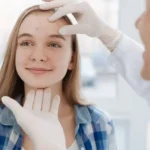 The reality is that acne does not have to run its course. Many effective treatments are available to help clear up acne and prevent breakouts. Some treatments are good for getting rid of current blemishes, while others are designed to prevent future breakouts.
The reality is that acne does not have to run its course. Many effective treatments are available to help clear up acne and prevent breakouts. Some treatments are good for getting rid of current blemishes, while others are designed to prevent future breakouts.
So, if you’re struggling with acne, don’t assume that you have to wait it out until it eventually goes away on its own. Talk to your doctor about the top treatment options for you.
Myth #10: Acne Is Only A Cosmetic Problem
Because it shows up on the skin, acne is often thought of as a cosmetic problem. But this doesn’t tell the whole story.
Acne can have a powerful impact on a person’s quality of life. It can cause low self-esteem, depression, and anxiety. These “side-effects” of acne are substantial and should not be ignored.
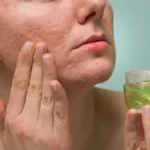 Additionally, certain types of acne, such as cystic acne, can be painful. This is particularly true when the lesions are located in areas where binding clothing, backpacks, or purses can rub against them.
Additionally, certain types of acne, such as cystic acne, can be painful. This is particularly true when the lesions are located in areas where binding clothing, backpacks, or purses can rub against them.
Furthermore, some acne can lead to permanent scarring. So, it’s essential to seek treatment to prevent this from happening.
And while acne can cause physical and emotional problems, it can also be a sign of a more severe underlying health condition for some people. The bottom line is that acne is not just a cosmetic problem. It’s an actual condition that can have genuine repercussions if left untreated.
If you’re struggling with acne, it’s critical to talk to your doctor about how it’s affecting you. Many useful and effective treatments available can help clear up your skin and improve your quality of life.
Myth #11: You Can Treat Acne With Toothpaste
You may have heard that toothpaste can help to clear up acne. Toothpaste does indeed contain some ingredients that can help to dry out pimples. However, it’s not an effective acne treatment.
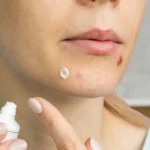 In fact, using toothpaste on your skin can actually cause more irritation and clogged pores, leading to more breakouts.
In fact, using toothpaste on your skin can actually cause more irritation and clogged pores, leading to more breakouts.
Also, toothpaste can cause irritation and contact dermatitis. So, it’s best to avoid using it on your skin, even if you’re desperate to get rid of a pimple.
Scientific research backs some home remedies as effective for treating acne, but toothpaste is not one of them. If you’re struggling with acne, it’s best to stick to proven treatments and leave the toothpaste in your bathroom.
Myth #12: You Need to Drink Lots of Water to Clear Up Acne
Drinking plenty of water is vital for overall health. But does it help to clear up acne?
 The answer is no. There is no scientific evidence to support the claim that drinking lots of water can help to clear up acne. But, keeping your skin hydrated can help to prevent dryness and irritation, which can make acne worse.
The answer is no. There is no scientific evidence to support the claim that drinking lots of water can help to clear up acne. But, keeping your skin hydrated can help to prevent dryness and irritation, which can make acne worse.
So, while drinking plenty of water won’t help to clear up your acne, it is still crucial for your skin’s health.
Myth #13: Wearing Sunscreen Will Aggravate Your Acne
You may have heard that sunscreen can aggravate acne. But this is a myth. Wearing the correct type of sunscreen can help to protect your skin from the harmful effects of the sun. Sunscreen can also prevent the darkening of acne scars.
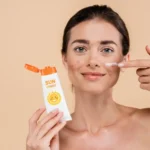 Sunscreen provides moisture and creates a barrier between your skin and the sun. Additionally, some sunscreen ingredients can help to reduce inflammation and redness. Zinc and niacinamide are two of these.
Sunscreen provides moisture and creates a barrier between your skin and the sun. Additionally, some sunscreen ingredients can help to reduce inflammation and redness. Zinc and niacinamide are two of these.
You do want to look for sunscreens designed for people with acne-prone skin. These sunscreens are labeled as non-comedogenic, meaning they won’t clog your pores.
Myth #14: Acne Only Affects People With Oily Skin
People with oily skin are indeed more prone to acne. This is because the excess oil can clog pores and provide the perfect environment for acne-causing bacteria to thrive.
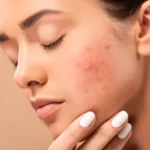 But this doesn’t mean people with dry skin also can’t suffer from breakouts. The bacteria that cause acne can live on dry skin, and specific triggers can cause breakouts in people with any skin type.
But this doesn’t mean people with dry skin also can’t suffer from breakouts. The bacteria that cause acne can live on dry skin, and specific triggers can cause breakouts in people with any skin type.
So, even if you don’t have oily skin, you could still be at risk of developing acne.
Myth #15: You Shouldn’t Moisturize Acne-prone Skin
Although oily skin is susceptible to acne breakouts, this doesn’t mean that you should avoid moisturizing. Using the proper type of moisturizer can, in reality, help to control excess oil and keep your skin hydrated.
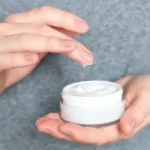 Many acne treatments can induce dryness and irritation. So, it’s necessary to use a moisturizer to help soothe your skin and prevent further irritation.
Many acne treatments can induce dryness and irritation. So, it’s necessary to use a moisturizer to help soothe your skin and prevent further irritation.
You want to search for a moisturizer that is labeled as non-comedogenic or oil-free. These moisturizers won’t clog your pores and will help keep your skin hydrated without worsening your acne.
Look for a light, non-comedogenic moisturizer that won’t clog your pores. And be sure to apply it after cleansing and before applying sunscreen or makeup.
Myth #16: Acne Develops Quickly
Most people think that acne develops quickly. But, in reality, it takes time for a pimple to form.
Acne begins when the pores in your skin become clogged with an oily substance called sebum and dead skin cells. The pore continues to produce oil while the sebum and dead skin cells mix and form a plug.
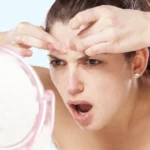 This plug provides the perfect environment for acne-causing bacteria to grow. That overgrowth of bacteria causes inflammation. This is what leads to the redness, swelling, and pain that are characteristic of acne.
This plug provides the perfect environment for acne-causing bacteria to grow. That overgrowth of bacteria causes inflammation. This is what leads to the redness, swelling, and pain that are characteristic of acne.
All this bacterial overgrowth takes time. So, even though it may seem like pimples pop up overnight, it can take weeks or even months for a breakout to occur.
This time lag is why it’s so important to be patient with acne treatments. It can take some weeks to see results, but stick with it and you will eventually see an improvement in your skin. Just remember that you are treating tomorrow’s pimples, not today’s.
Acne Myths
This article should have cleared up some of the myths about acne. Just realize that everyone’s skin is different, so what works for one person may not work for another.
If you are struggling with acne, it’s essential to see a doctor or other skincare professional who can help you find the best treatment for your skin. Don’t give up, and don’t be discouraged. With the proper approach, you can clear your skin and get the complexion you’ve been dreaming of.
